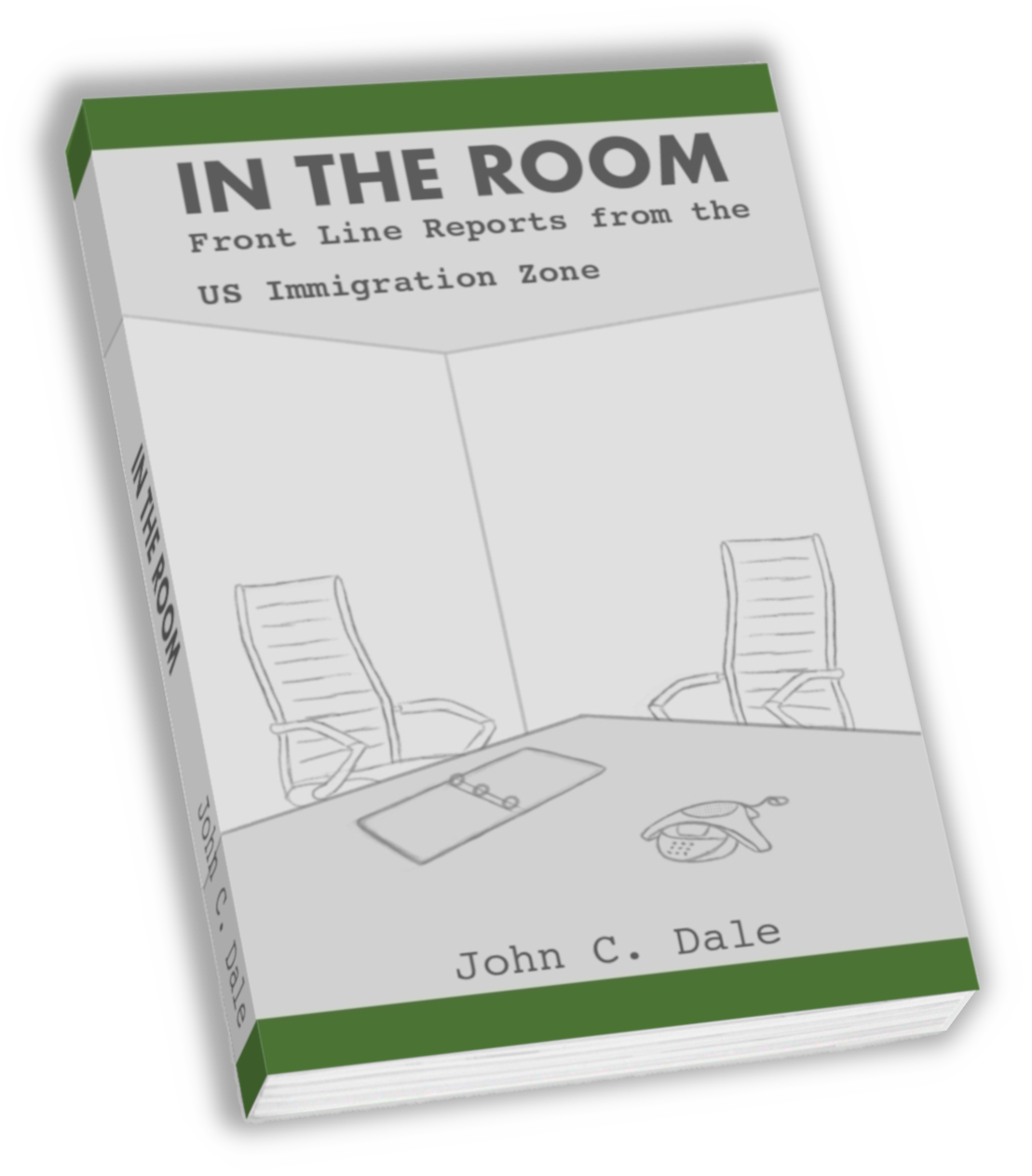In the Room
A new book out by John Dale explores the depths of the legal US immigration conundrum

When thinking about immigration, many people imagine smallish brown people streaming across the border in trucker hats and plaid shirts, ready to pick cotton, install new roofs, and drink up the country's excess Bud Light supply.
In Yuma, Arizona a bus system brings workers across the border to work the fields where the Colorado River gives its last gasp above ground in the US. As the fresh, once ice cold water sinks and disappears into the sands of southern Arizona, farm wages in the area are depressed as the region resembles a plantation operation. In Yuma, you have bosses and you have workers. Doesn't seem many farmers actually live there anymore, but it remains a powerhouse agriculture production center, feeding millions of people as the blazing year-round sunshine pushes heat units to the extreme.
Some American families are in touch with the heritage of the country's founding, which was the volunteers streaming toward the gunfire from their farms and ranches, from the hillsides, and from far-off untamed American lands. Answering the call of freedom and classic liberalism, America's founders also raised families within the graceful confines of America's heartland production operations.
But the future of farming and everything else is the miniaturization and automation of computing. Programming computers, at some point along the current timeline of mankind, will be 90% of the economy. Street cred will issue based on skill, insight. Like Object Oriented programming languages giving-way to their underlying assembler code, for the mice understanding the stack will command more of the cheese.
Technology is valuable. We can agree on this. Therefore, countries like India, Ukraine, Mexico, and China all compete for ownership of technology. America's markets - or what's left of them - attract big technology interests, but something happened post 9/11 that pressed America-first US citizens out of technology.
Internets and networks are high value targets for infiltration, exploitation, and takeover. Other nations lacking the natural resources of The United States learned to code to bolster economy. Then, foreign actors sold their workforce into the United States corporate complex to create pipelines to ease the burden of bringing in more foreign nationals to perform America's jobs of the future in software engineering, architecture, and various design fields. IT wages have been depressed, but the overall engineering competency of the country has also diminished, leaving its high school graduates less prepared to handle the jobs of the future, which will largely be mining data, tuning and maintaining robotics, testing, and other more intellectually heavy occupations.
In the book, we offer a sliver of a view of what is happening in some of today's largest corporations with respect to technology jobs. The book's primary protagonist, Kevin Lynn, saved over 200 jobs with the TVA in 2018 when he found himself in the room with President Trump, who signed an executive order to save the jobs. Also featured in the book are former employees of Intel and eBay, whose testimonial raises some flags for two of America's bedrock corporations. More info can be found at plainstribune.com/intheroom
I invite you to purchase the book today, a fairly short but powerful read, about how America's legal immigration system is causing many US tech workers to suffer dearly and unnecessarily.
As a back drop to the entire technology industry, which has been corralled by the globe's intelligentsia, is the heart of our culture, our communications and the languages they carry.


